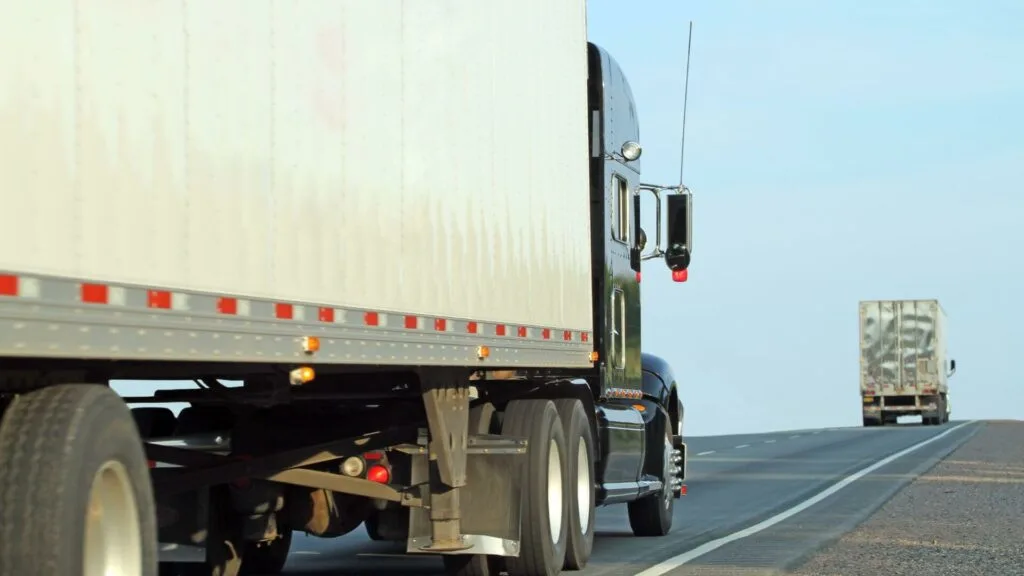Truck drivers must keep up with the ever-changing trucking industry landscape and any new legislation to stay compliant and safe while driving. For the safe and efficient navigation of their routes in 2024, truck drivers must be apprised of numerous noteworthy changes and modifications to laws.
It is critical to stay updated on these developments to optimize operations, keep the supply chain intact, and comply with regulations. Let’s look at the most up-to-date information for truck drivers in 2024, emphasizing regulatory changes and upgrades.

Regulatory agency websites, truck driver news outlets, and industry magazines are some of the places truck drivers go to keep up with the latest developments in their field. For freight carriers, these sources are invaluable when it comes to forthcoming changes in rules, safety standards, and industry trends.
As trucking regulations undergo continuous revisions in 2024 in reaction to shifting safety standards, environmental concerns, and technology developments, maintaining connections to trustworthy sources of truck driver news will be more important than ever.
1. Speed Limiters Must Be Installed
A redacted DOT report caused a stir by implying that highway and interstate commercial vehicle speeds will soon be capped at 68 mph. The group swiftly changed course, saying they had not yet decided on a certain speed restriction.
The papers will specify the top speed restriction and the categories of cars that must adhere to the new rules. Vehicles manufactured after 2003 and weighing 26,000 pounds or over will supposedly be the only ones needing speed limiters installed.
Although it may be some time before speed limiters impact day-to-day operations, it is prudent to remind drivers of the need for safe driving behaviors, such as managing their speed. These seven safety messages might help establish good routines.

2. ELD
The ongoing growth of electronic logging device (ELD) regulations is another significant event that will occur in 2024. Most commercial motor vehicles (CMVs) are now required to have electronic logs (ELDs) to precisely record drivers’ hours of service and guarantee compliance with HOS laws.
Truck drivers may anticipate increasingly advanced ELD systems with expanded capabilities and features as technology progresses. Drivers must keep themselves updated on the most recent ELD rules and improvements to make the most of these technologies and optimize their operations.
3. Legal Changes
Truck drivers must be updated on all the latest safety protocols and environmental requirements, not only those about HOS and ELD laws. Regulatory agencies such as the FMCSA often revise safety guidelines to improve road safety and handle developing concerns. Truck drivers are responsible for keeping themselves informed about these changes and for implementing safety measures to reduce the likelihood of accidents.
Some examples:
- Screening for Drugs
Truck drivers are required to know and follow several regulations, one of which is the one regarding mandatory drug testing. Truck drivers are subject to more stringent drug regulations than other types of drivers, imposed by the Department of Transportation and the Federal Motor Carrier Safety Administration.

For example: you can’t have any alcoholic beverages on board unless in a marked container, and your blood alcohol concentration (BAC) must be less than 0.02.
- DMV Checks
Truck drivers are required to undergo a physical examination every two years in addition to the drug testing already mentioned. This will ensure they stay fit, have good eyesight, and can drive alertly.
They risk revoking their commercial driver’s license if they skip out on the physical examination. They must also complete training every two years to update their knowledge and stay abreast of regulations and legislation that may change.
4. Environmental Laws
Emissions standards and idling limitations are two examples of environmental laws that are always changing to lessen the environmental effects of the trucking industry. Truck drivers may do their part for sustainability by learning about these rules and then implementing them.
5. Competency of Drivers
To guarantee that all commercial drivers operating in the United States are competent, educated, and familiar with federal regulations, the Advocates for Highway and Auto Safety presented a proposal to the Federal Motor Carrier Safety Administration in 2009, requesting that the agency institute a competency test for commercial drivers.
The petition remained unclear for the subsequent fourteen years. No one expected the FMCSA to pursue the move in August 2023, when they published an ANPRM or Advance Notice of Potential Rule Making.
Commercial carriers would do well to reevaluate their employment and training practices in 2024. Regular training benefits both novice and seasoned drivers. Fleets that train monthly have half the number of violations compared to those that train twice yearly.
Space management, distracted driving, and defensive driving are just a few examples of the topics that should be included in any good driver education program.
Also, commercial carriers should have stringent hiring procedures to prevent issues from arising. Thoroughly screening drivers will promptly identify those who pose a risk, guaranteeing that only the most competent and secure drivers operate the vehicles.

In the end!
Safety, compliance, and professionalism must be truck drivers’ top priorities as they deal with the complexity of new requirements in 2024. By maintaining a high level of knowledge and taking initiative, drivers may successfully navigate regulatory changes, adapt to new needs, and prosper in the dynamic trucking sector.
To succeed in the dynamic trucking industry, it is necessary to use reputable sources for truck driver news, monitor regulatory changes, and seek out extra training and resources as needed. Truck drivers may maintain the utmost professionalism and integrity while safely and effectively delivering goods by adopting these principles.

Jessi is the creative mind behind The Coffee Mom, a popular blog that combines parenting advice, travel tips, and a love for all things Disney. As a trusted Disney influencer and passionate storyteller, Jessi’s authentic insights and relatable content resonate with readers worldwide.
